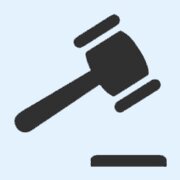Best Creditor Lawyers in Texas
Share your needs with us, get contacted by law firms.
Free. Takes 2 min.
Or refine your search by selecting a city:
List of the best lawyers in Texas, United States
About Creditor Law in Texas, United States
Creditor law in Texas outlines the rights and responsibilities of individuals or entities to whom a debt is owed. Creditors range from banks and credit card companies to individuals and small businesses. In Texas, creditor law governs how a creditor may collect a debt, what remedies are available when payments are missed, and how disputes are resolved. These rules are designed to balance the rights of creditors to collect money legally owed and the need to protect the debtor from unfair or abusive collection practices.
Why You May Need a Lawyer
There are many reasons why someone may require legal assistance in creditor-related matters in Texas. If you are a creditor, you may need help with collecting debts, enforcing judgments, or navigating the complexities of bankruptcy proceedings. Individuals facing aggressive collection efforts from creditors or lawsuits related to unpaid debts can also benefit from legal counsel. Lawyers can help negotiate settlements, ensure compliance with federal and state debt collection regulations, and represent clients in court if needed. Seeking legal advice can also be crucial if you are dealing with business debts, foreclosure, or questions about liens and asset protection.
Local Laws Overview
Texas law provides specific protections and obligations for both creditors and debtors. Notable aspects include:
- Homestead Exemption: Texas law protects a debtor's primary residence from most creditor claims, making it difficult for unsecured creditors to force the sale of a person's home.
- Wage Garnishment: Texas generally prohibits wage garnishment for most consumer debts, except for certain obligations such as child support, taxes, and student loans.
- Statute of Limitations: Creditors have a specific period to legally pursue debt collection in Texas. Most unsecured debts have a statute of limitations of four years.
- Collection Practices: Both federal laws, like the Fair Debt Collection Practices Act (FDCPA), and Texas laws regulate how debts can be collected, prohibiting harassment and deceptive practices.
- Secured vs. Unsecured Debt: Texas distinguishes between secured debts, which have collateral, and unsecured debts, which do not. This affects what assets a creditor may go after if a debtor defaults.
- Creditors’ Remedies: Creditors may file lawsuits, pursue judgments, and, in some cases, seek liens on property or bank account levies, but these actions must comply with Texas law.
Frequently Asked Questions
What is a creditor?
A creditor is an individual, institution, or business to whom money is owed, usually as the result of a loan, purchase on credit, or unpaid service.
How long does a creditor have to collect a debt in Texas?
The statute of limitations for most debt collection in Texas is four years. After this period, a creditor cannot sue to collect the debt, but may still attempt voluntary collection.
Can my wages be garnished for unpaid debts in Texas?
In Texas, wages can generally only be garnished for child support, spousal maintenance, unpaid taxes, or defaulted student loans. Most consumer debt cannot result in wage garnishment.
What assets are protected from creditors?
Texas provides broad exemption laws, protecting a primary residence (homestead), personal property up to a certain value, and specific retirement and insurance benefits from most creditors' claims.
Can creditors take my home?
In most cases, unsecured creditors cannot force the sale of your primary residence due to the Texas homestead exemption. However, this does not protect against foreclosure for unpaid mortgages or certain tax debts.
What should I do if I am sued by a creditor?
If you are sued by a creditor, it is important to respond promptly. Ignoring a lawsuit can result in a default judgment against you. Consider consulting with an attorney to explore your rights and possible defenses.
Are there limits on collection tactics creditors can use?
Yes, both Texas and federal law restrict debt collectors from using harassment, threats, misleading statements, or other abusive collection tactics.
Can a creditor put a lien on my property?
If a creditor obtains a court judgment against you, they may place a lien on certain types of property that are not exempt under Texas law.
What happens if I file for bankruptcy?
Filing for bankruptcy can halt most collection efforts and may discharge many types of unsecured debts. However, some debts, such as child support or certain taxes, may not be dischargeable.
How can an attorney help me if I am a creditor?
An attorney can help creditors understand and comply with state and federal laws, draft demand letters, file lawsuits, enforce judgments, and recover debts owed through lawful means.
Additional Resources
For additional information or help, consider contacting:
- Texas Attorney General’s Office – Consumer Protection Division
- Texas Office of Consumer Credit Commissioner
- State Bar of Texas – Lawyer Referral & Information Service
- Federal Trade Commission (FTC) – Debt Collection Information
- Local legal aid services and nonprofit consumer advocacy organizations
Next Steps
If you believe you need legal help with a creditor issue in Texas, begin by gathering all relevant documents such as loan agreements, collection letters, court notices, and payment records. Consider reaching out to a qualified attorney who specializes in creditor law or debt collection matters. Many attorneys offer initial consultations to discuss your case. You can also contact local legal aid organizations if you have limited resources. Acting promptly can protect your rights, maximize your legal options, and help you make informed decisions regarding creditors or debt-related disputes.
Lawzana helps you find the best lawyers and law firms in Texas through a curated and pre-screened list of qualified legal professionals. Our platform offers rankings and detailed profiles of attorneys and law firms, allowing you to compare based on practice areas, including Creditor, experience, and client feedback.
Each profile includes a description of the firm's areas of practice, client reviews, team members and partners, year of establishment, spoken languages, office locations, contact information, social media presence, and any published articles or resources. Most firms on our platform speak English and are experienced in both local and international legal matters.
Get a quote from top-rated law firms in Texas, United States — quickly, securely, and without unnecessary hassle.
Disclaimer:
The information provided on this page is for general informational purposes only and does not constitute legal advice. While we strive to ensure the accuracy and relevance of the content, legal information may change over time, and interpretations of the law can vary. You should always consult with a qualified legal professional for advice specific to your situation.
We disclaim all liability for actions taken or not taken based on the content of this page. If you believe any information is incorrect or outdated, please contact us, and we will review and update it where appropriate.
Browse creditor law firms by city in Texas
Refine your search by selecting a city.















